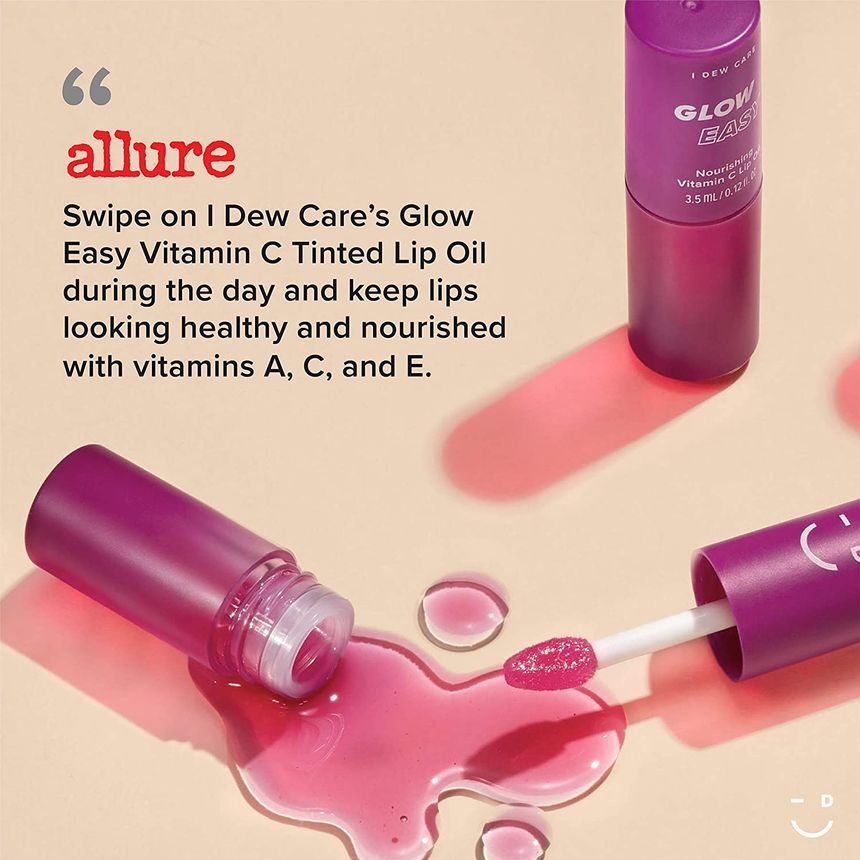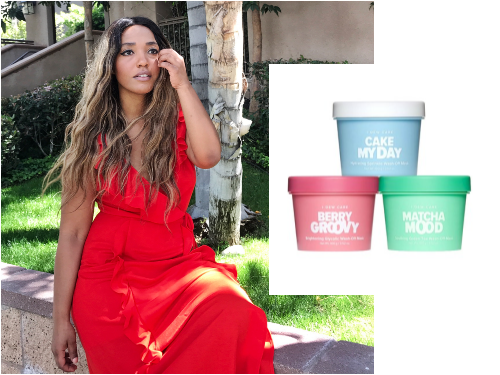
Activated by the heat of your hairdryer, it'll loosen up your curls. If you're looking for straight hair, try Bumble & Bumble's straight blow-dry balm. You should not be using this pregnant or not,' advises Dr Goldfaden. 'This is carcinogenic and may be absorbed into organs. If, however, you do come across a product or treatment in which this is offered, step away.
#I DEW CARE GLOW EASY PROFESSIONAL#
This used to be used in some professional hair-straightening treatments, but its use became severely limited after it was found to be a carcinogen around 2014. Steer clear as it 'is not safe during pregnancy,' says Dr Mahto.
#I DEW CARE GLOW EASY SKIN#
However, it's also found in many illegal skin bleaching creams that are imported from abroad. Used as an ingredient to treat hyperpigmentation, it can only be prescribed by dermatologists or a GP. To be super safe, before using it, it's best to check in with your GP or a dermatologist. 'In low concentrations of up to 2%, it's unlikely to pose a risk to the developing baby – but should not be used in high percentages such as those found in chemical peels.' 'There are no real studies looking at salicylic acid use in pregnancy but as very little is absorbed through the skin,' Dr Mahto says. Often used to fight acne, low concentrations of this are totally safe to use in pregnancy. A safe and effective approach is to transfer to a high strength azelaic acid with or without benzoyl peroxide,' explains Dr Mennie. 'For those using retinoids to help with acne, then I would advise an early consultation with a doctor specialised in pregnancy skincare. The substitute for retinoids during pregnancy depends on your reasons for using them. 'Even though the absorption rates of retinol and prescription retinoid through the skin are low, there have been isolated case reports of retinoid-caused embryopathy and general advice is that these are best avoided in pregnancy.' What can I use instead of retinol, when pregnant? 'These should be avoided during pregnancy,' says Dr Mahto. Retinoids (Retinol, and some acne medications such as Roaccutane) 7 ingredients to avoid if you're pregnant 1. If possible, try and work on converting to a routine that is pregnancy and breastfeeding safe before conceiving,' she clarifies. 'Acne, pigmentation, sensitivity and antiaging can all be targeted during this time. Skincare has evolved in recent years and there are a number of effective ingredients that, with careful layering, can treat common skin concerns safely during pregnancy,' explain Dr Mennie. There is definitely no need to give up your skincare routine.

Is it safe to use skincare while pregnant? As such, unfortunately, some of your pre-pregnancy products may not work as well as they used to during your pregnancy and in the immediate years after,' she adds. 'There is also a change in the immune system during pregnancy which can be responsible for leaving the skin more sensitive. During pregnancy, there are significant hormonal changes that can result in new or worsening acne, pigmentation, and an accelerated loss of collagen and elastin,' explains Dr Jo Mennie, who specialises in infertility, and pregnancy skincare at the Aesthetic Practice at Dr David Jack Clinic. 'Pregnancy skincare however is not as simple as just avoiding certain ingredients.


The upshot? 'It's best to be cautious whilst pregnant.' 'While topical skincare products or a ‘cosmeceutical’ are not legally classified or recognised as a ‘drug’, there is a lot of controversy surrounding what does or does not actually get absorbed into the body.' Once in the circulation, they have the potential to cross the placenta and affect the developing foetus.' 'There is increased systemic blood flow in the body whilst pregnant so absorption through the skin means that certain agents may pass into the bloodstream. 'Certain active cosmetic ingredients may be absorbed through the skin during pregnancy,' says Dr Anjali Mahto, a consultant dermatologist and author of The Skincare Bible. The reason why some skincare is not safe for pregnancy is straightforward.

Plus, I tried a pregnancy-safe skincare routine that was prescribed by a skincare doctor.
#I DEW CARE GLOW EASY HOW TO#
Not sure what ingredients to avoid when pregnant? Or how to tackle the latest wave of hormonal acne? I caught up with the leading experts who breakdown exactly what is meant by 'pregnancy-safe skincare' as well as the ingredients to avoid. However, as I quickly learned when I was pregnant, prenatal-safe skincare does mean that a few faves need to be put to one side for a while – much like gin and tonics with a grapefruit twist and cheese so soft you could use it for pottery. The good news is that your entire skin set-up doesn't need to be altered beyond all recognition. If you're currently cooking a baby but had your SPF, vitamin C, retinol routine sorted out a long time ago – then you might be feeling a little trepidatious about what needs to change.


 0 kommentar(er)
0 kommentar(er)
